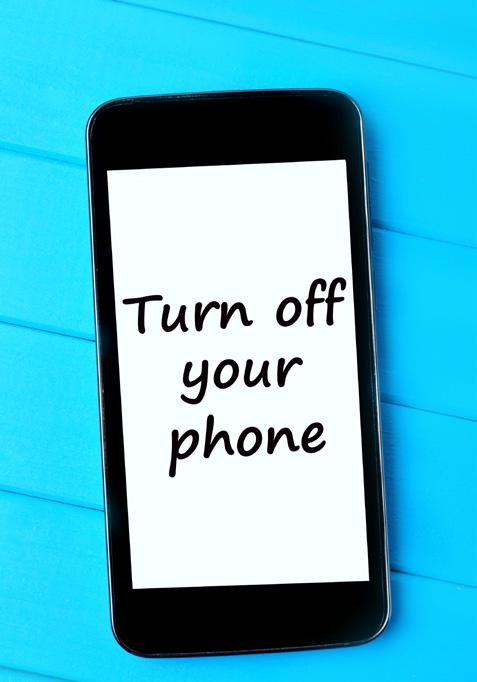
5 minute read
ESSENTIAL SOCIAL SKILLS AND COMMUNICATION FOR ALL TEENS
By Kirt Manecke
SOCIAL SKILLS ARE THE TOP FACTOR IN GETTING A JOB, ACCORDING TO HARVARD UNIVERSITY. IS YOUR TEEN PREPARED? SOCIAL SKILLS ARE POWERFUL SKILLS. THEY HELP US MAKE FRIENDS, GET AND KEEP A JOB, AND HAVE A FULFILLING LIFE. SOCIAL SKILLS CAN SOMETIMES BE CHALLENGING FOR TEENS WITH SPECIAL NEEDS.
The following activities will help you assist your teen or student in improving communication and social skills:
Communicate with adults
Your teen will gain awareness of the importance of people skills when communicating with adults.
Ask: “Think about a recent time in your life when you felt awkward around adults. Some examples are a wedding ceremony and/or reception, a funeral, or meeting adult acquaintances of a family member for the first time. Tell me about the event. Describe the actions of the adults and how you reacted.” (Parent or teacher may share an event from their teen years as an example.)
Discuss essential social skills and your teen’s experience during that event. Here are some suggestions on how to guide your discussion:
• Describe actions that illustrate good social skills used by the adults and your teen.
• Describe actions that did not illustrate good social skills used by the adults and your teen. • What does a lack of social skills look like to adults? To parents? To other teens?
• What could have been done to improve communication?
• Have your teen or student describe how they could have used good social skills to improve communication at their event.
Discuss and roleplay
Roleplay scenario: Ted is sitting at a table and face-to-face with his family at a restaurant.
Inappropriate communication: While Ted is talking to his mom, he pulls his cell phone out of his pocket, looks down, and quickly checks for messages. Then he puts his cell phone back in his pocket. He does this every five minutes.
Professional communication: Ted is talking to his mom uninterrupted while making consistent eye contact. His phone is turned off and either left at home or put away.
Quiz: You are at the dinner table at home with your family and your cell phone rings, pings, or vibrates. What do you do?
Correct answer: Ignore it.
Roleplay scenario: Assign another teen or yourself as a partner. Roleplay having a conversation with a friend, an adult, or a customer. During the conversation, the teen’s cell phone rings, pings, or vibrates. The teen should ignore their cell phone, maintain eye contact, and continue the conversation. I can’t stress enough the importance of making a powerful first impression. As Will Rogers said, “You never get a second chance to make a good first impression.”
A smile can create a friend. It can create a customer for life. Smiling is one of the most important social skills. Have your teen read the following two paragraphs, then have them practice the skill by roleplaying with you or another teen.
Smile and say hello
This may sound basic, but you’d be surprised how many people fail to greet others, whether family, friends, or customers, with a smile. When you meet someone socially, focus on that person and greet them with a smile. When customers enter your workplace, greet each one promptly and politely.
Here’s how:
1. Smile—make it a warm, genuine, heartfelt smile
2. Look people in the eye
3. Say “Hello!”
4. Speak in a warm, upbeat, and friendly manner, and be sincere
Turn off the electronics
If teens are engrossed in an electronic device, they are not fully focused on the people around them. Cell phones, games, videos, texting, and surfing the internet all keep teens from practicing essential social skills. When used too often or inappropriately, they can get in the way of your teen’s face-to-face social relationships.
Teens should NEVER use their cell phone or other digital devices for personal use (texting, emails, phone calls, games) while at work. The only exception is if it’s a tool required for their job. Here are some guidelines to share with your teen:
• Be careful. Whatever you text or post online lasts forever.
Make sure it’s positive and that you are always nice.
• Photos last forever. Always ask a person’s permission before taking or posting their picture.
• If a personal email or text upsets you, don’t respond right away. Wait at least 24 hours. This gives you time to think about it.
• Don’t let your conversations be interrupted by text messages or cell phone calls. The exception is if it’s your parents or guardian or a true emergency.
• It’s okay to suggest that phones be turned off or left on vibrate when spending time with your friends.
Leave your electronic devices off or silenced:
• When you are at the dinner table.
• Anytime you are with people who want to have a face-toface conversation with you.
• When at movie theaters, libraries, restaurants, places of worship, in class, and other public places.
• When at work (ALWAYS).
If you are not sure, just turn them off.
These tips will ensure teens make a powerful first impression to succeed in school, work, and life.

Parts taken from “Smile & Succeed for Teens: Must-Know People Skills for Today’s Wired World” Copyright © 2014-2021, and “Parent’s Guide for Smile & Succeed for Teens” © 2017-2021 by Kirt Manecke.
Kirt Manecke is an award-winning author. Endorsed by Temple Grandin, his book and new online course, Smile & Succeed for Teens, is a crash course in social and career skills. It is also available as an audio book. Classroom packs with teaching guide are available. The online course is ideal for at-home or virtual learning. For career skills training for adults with special needs, Kirt’s book Smile: Sell More with Amazing Customer Service is a 60-minute crash course in customer service and sales. Website: www.SmiletheBook.com Email: Kirt@SmiletheBook.com










